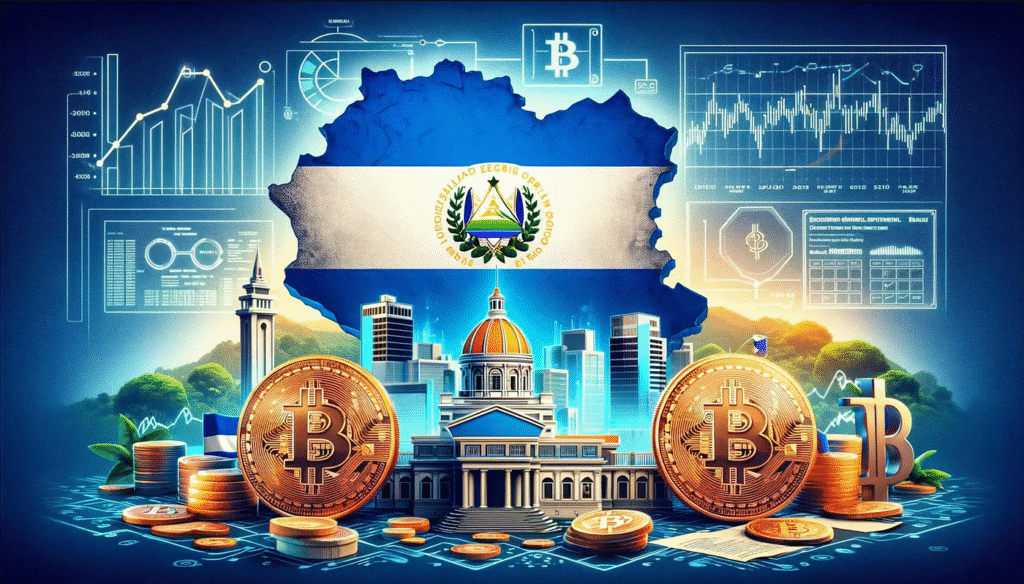In a move that solidifies its status as the world’s most audacious nation-state Bitcoin experiment, El Salvador has announced plans for a second “Bitcoin City.” This new development, slated to be built near the Tecapa volcano complex, doubles down on President Nayib Bukele’s vision of a future powered by decentralized currency and renewable energy. The project aims not only to expand the country’s Bitcoin mining capacity but also to create a specialized economic zone designed to attract global tech talent and investment, all running on the clean, geothermal power drawn from the earth’s core.

The announcement is both a bold reaffirmation of El Salvador’s unique path and a direct response to the critics and skeptics who have watched its initial foray with a mixture of fascination and alarm. While the first Bitcoin City, announced in 2021 to be built at the base of the Conchagua volcano, has seen slower-than-anticipated progress, this second initiative suggests the government is learning, adapting, and accelerating its strategy. For investors and the global crypto community, it’s a development that cannot be ignored, representing a high-stakes test of whether a nation can truly re-engineer its economy around Bitcoin.
The Core Concept: Harnessing Volcanic Power
The centerpiece of this new project, like its predecessor, is “volcano energy.” El Salvador, situated on the Pacific Ring of Fire, is rich in geothermal potential. The government’s strategy is to harness this natural, 24/7 renewable energy source to solve Bitcoin’s most significant challenge: its immense electricity consumption.
By building state-of-the-art geothermal power plants, El Salvador can offer Bitcoin miners what they crave most: cheap, stable, and, crucially, green energy. This addresses the persistent environmental, social, and governance (ESG) concerns that have plagued the mining industry and made many institutional investors wary. A mining operation powered by a volcano is not just a novelty; it is a powerful geopolitical and marketing statement. It reframes Bitcoin mining from an environmental liability into a catalyst for developing renewable energy infrastructure.
This new city is reportedly designed to be more focused than the first. While the original vision for Conchagua included residential areas and a full-service metropolis, the Tecapa project is being framed as an industrial and technological hub. The primary goal is to host large-scale, institutional-grade Bitcoin mining farms, data centers, and research labs dedicated to blockchain technology and AI, all benefiting from the unparalleled energy advantage.
The Economic and Financial Strategy
This announcement is more than just an infrastructure project; it’s a multi-pronged economic strategy. By becoming a global hub for green Bitcoin mining, El Salvador aims to:
- Generate State Revenue: The government plans to operate its own mining pools and take a share of the profits from private miners operating within the zone. This creates a new, non-tax-based revenue stream that is directly tied to the success of the Bitcoin network.
- Attract Foreign Direct Investment (FDI): The promise of zero income, property, and capital gains taxes within the city, combined with cheap energy, is a powerful lure for international mining companies and tech entrepreneurs looking for a friendly jurisdiction.
- Strengthen the “Volcano Bonds”: The initial “Volcano Bond” (EBB1), intended to fund the first city, faced delays. Announcing a second, more focused project could rejuvenate interest and demonstrate a long-term commitment, potentially making future bond offerings more attractive to investors who see a clearer, more industrial use case.
- Achieve Financial Sovereignty: At its core, this is a continuation of Bukele’s quest to de-dollarize El Salvador’s economy and reduce its reliance on traditional financial institutions like the IMF and World Bank, which have been openly critical of the country’s Bitcoin law.
Navigating the Risks and Skepticism
Despite the bold vision, significant challenges remain. The international community, particularly credit rating agencies and the IMF, remains deeply skeptical. Their concerns are not without merit.
First, there is execution risk. The original Bitcoin City is still largely a blueprint. Delivering on one, let alone two, such ambitious projects requires immense capital, engineering expertise, and political stability. The government must prove it can translate its grand announcements into tangible reality.
Second, there is market volatility. El Salvador’s economic fortunes are now inextricably linked to the price of Bitcoin. While this offers massive upside potential during a bull market, a prolonged bear market could strain the nation’s finances and undermine the profitability of its mining operations. The strategy is a high-conviction bet that, in the long run, Bitcoin’s value will continue to appreciate.
Finally, there are social and governance questions. Critics argue that these mega-projects may not directly benefit the average Salvadoran citizen, whose daily adoption of Bitcoin for transactions remains low. Concerns about the centralization of power under President Bukele and a lack of transparency in how public funds are being used for these crypto-ventures persist.

Conclusion: A Nation Forging a New Path
The unveiling of a second Bitcoin City is a clear signal that El Salvador is not retreating from its crypto-first strategy. It is aggressively pushing forward, attempting to build a sustainable competitive advantage in the global digital economy. The project is a fascinating convergence of technology (blockchain), energy (geothermal), and economics (libertarian-inspired policy).
For investors, El Salvador remains a case study in high-risk, high-reward frontier investing. Its success or failure will provide invaluable data on the viability of Bitcoin as a national treasury asset and the potential for nation-states to become active participants in a decentralized financial world. The world is watching, not just to see if a city can be built from scratch, but to see if a nation’s economic future can be successfully and sustainably mined from the heart of a volcano.
Image Source: https://www.aljazeera.com/news/2021/11/21/el-salvador-to-build-first-bitcoin-city-backed-by-btc-bonds